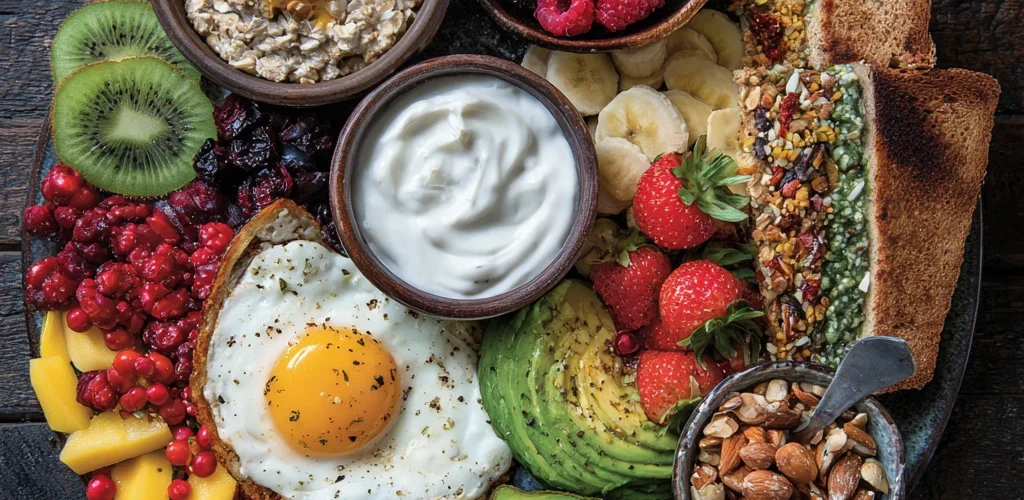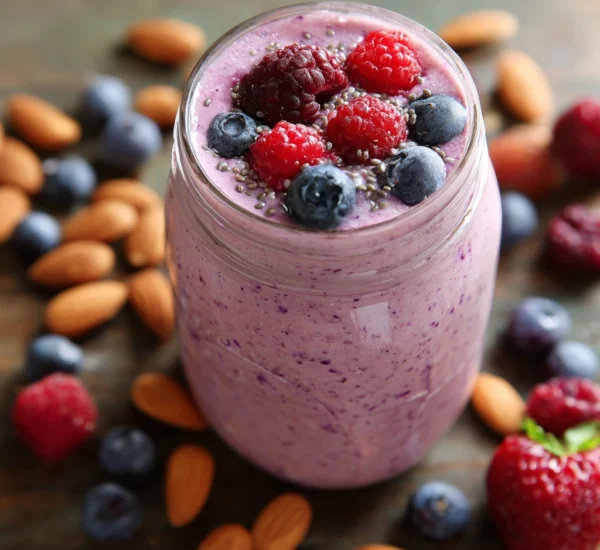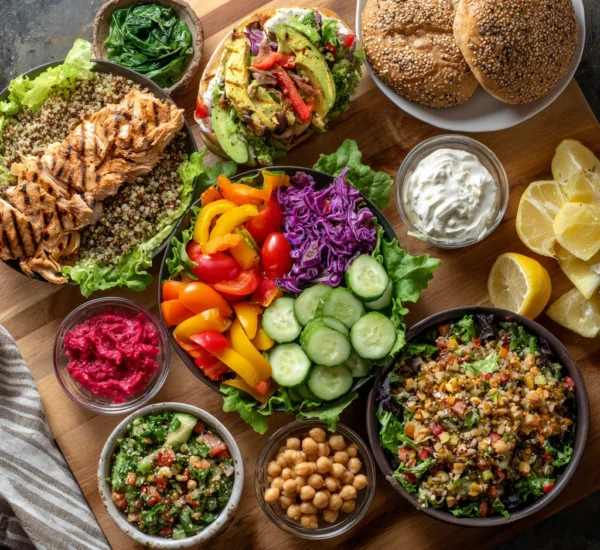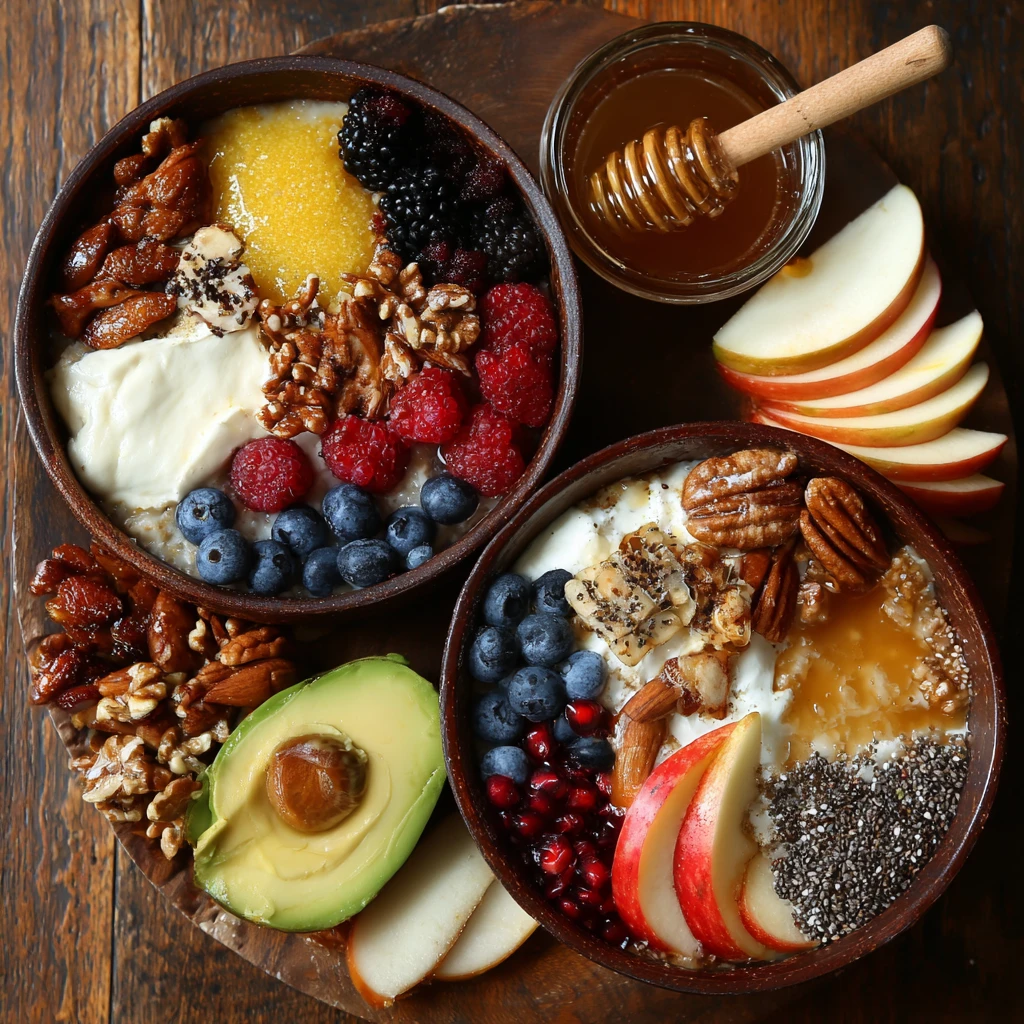Breakfasts That Kick-Start Your Morning
Starting your day with a nutritious and energizing breakfast is crucial for overall well-being and productivity. A well-chosen breakfast can improve focus, boost energy levels, and set the stage for a successful day. But with so many options available, how do you choose the breakfasts that truly “kick-start” your morning? This article explores ten fantastic breakfast ideas designed to energize and nourish you.
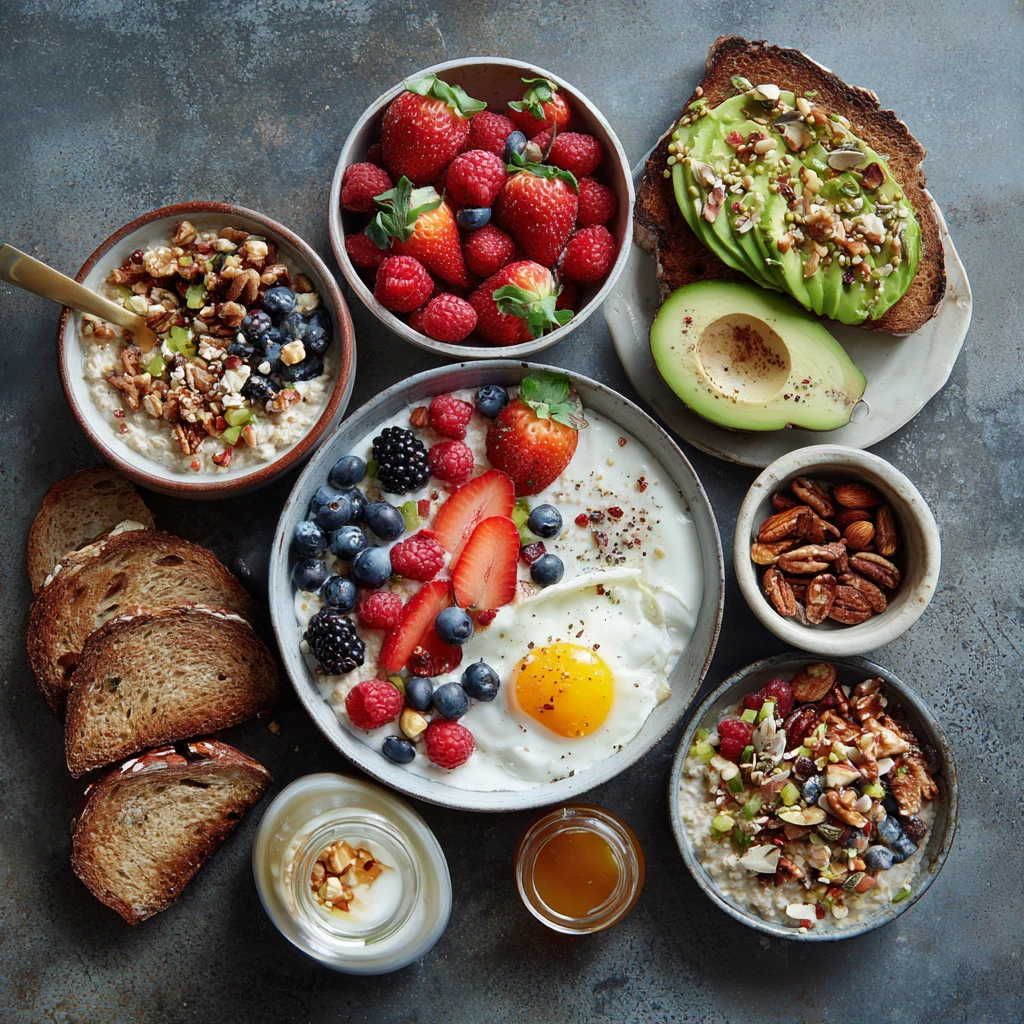
Section 1: The Importance of a Power-Packed Breakfast
Skipping breakfast might seem like a quick way to save time, but the long-term consequences can outweigh the perceived benefits. A balanced breakfast refuels your body after a night of fasting, replenishing glycogen stores and providing essential nutrients for optimal brain function and physical performance.
Why Breakfast Matters: Fueling Your Day
After hours without food, your body’s blood sugar levels are naturally low in the morning. Eating breakfast helps stabilize these levels, preventing the energy crashes and cravings that can derail your day. Studies have consistently linked breakfast consumption to improved cognitive function, including memory and concentration. For students and professionals alike, a nutritious breakfast can translate into better performance at school or work.
The Long-Term Benefits: More Than Just Energy
Beyond immediate energy, a regular breakfast habit contributes to long-term health benefits. Research suggests that people who eat breakfast are less likely to be overweight or obese, and they tend to have lower risks of developing type 2 diabetes and heart disease. This is likely due to the fact that breakfast eaters tend to have healthier overall dietary patterns.
Building a Balanced Breakfast: Key Components
A power-packed breakfast should include a combination of complex carbohydrates, lean protein, and healthy fats. Complex carbs provide sustained energy release, preventing blood sugar spikes. Lean protein helps you feel full and satisfied, supporting muscle growth and repair. Healthy fats contribute to brain health and hormone production. Examples of these components include:
- Complex Carbohydrates: Whole-grain bread, oatmeal, quinoa, sweet potatoes
- Lean Protein: Eggs, Greek yogurt, lean meats, nuts and seeds
- Healthy Fats: Avocado, nuts, seeds, olive oil
Section 2: Ten Breakfast Ideas for Sustained Energy
Here are ten delicious and energizing breakfast ideas incorporating the key components of a power-packed meal:
1. Oatmeal with Berries and Nuts
Oatmeal is a classic breakfast staple, providing a good source of fiber and complex carbohydrates. Top it with fresh berries for antioxidants and natural sweetness, and add a sprinkle of nuts for healthy fats and protein.
- Why it works: Fiber-rich oatmeal keeps you feeling full for longer, while berries and nuts provide essential vitamins and minerals.
2. Greek Yogurt with Granola and Fruit
Greek yogurt is packed with protein, making it a great option for sustained energy and satiety. Add granola for crunch and complex carbohydrates, and top with your favorite fruits for added vitamins and flavor.
- Why it works: The high protein content of Greek yogurt helps stabilize blood sugar levels, while granola provides a slow-releasing energy source.
3. Avocado Toast with Egg
Avocado toast has become a popular breakfast trend, and for good reason. Avocado is a source of healthy fats that keeps you feeling satisfied, and adding an egg provides a boost of protein.
- Why it works: The combination of healthy fats and protein provides sustained energy and helps prevent cravings later in the day. Consider adding a sprinkle of red pepper flakes for a metabolic kick.
4. Smoothie with Protein Powder
Smoothies are a quick and convenient way to pack a lot of nutrients into one meal. Combine fruits, vegetables, protein powder, and healthy fats for a balanced and energizing breakfast.
- Why it works: Smoothies allow you to customize your nutrient intake based on your individual needs. Adding protein powder helps boost satiety and support muscle growth.
5. Whole-Wheat Pancakes with Fruit and Nuts
Pancakes don’t have to be an unhealthy indulgence. By using whole-wheat flour and topping them with fruit and nuts, you can create a nutritious and satisfying breakfast.
- Why it works: Whole-wheat flour provides fiber and complex carbohydrates, while fruit and nuts add vitamins, minerals, and healthy fats.
6. Breakfast Burrito with Eggs, Beans, and Vegetables
A breakfast burrito is a hearty and filling option that can provide sustained energy throughout the morning. Fill a whole-wheat tortilla with scrambled eggs, black beans, vegetables, and a sprinkle of cheese.
- Why it works: The combination of protein, fiber, and complex carbohydrates provides a slow-releasing energy source that keeps you feeling full and satisfied.
7. Chia Seed Pudding
Chia seeds are packed with fiber, protein, and healthy fats, making them a great addition to any breakfast. Combine chia seeds with milk (dairy or non-dairy) and your favorite toppings for a delicious and nutritious pudding.
- Why it works: Chia seeds expand in your stomach, helping you feel full and satisfied for longer. They also provide a sustained release of energy.
8. Cottage Cheese with Fruit and Seeds
Cottage cheese is a good source of protein and calcium. Top it with your favorite fruits and seeds for added vitamins, minerals, and healthy fats.
- Why it works: The high protein content of cottage cheese helps stabilize blood sugar levels and keeps you feeling full.
9. Scrambled Tofu with Vegetables
For a vegan option, scrambled tofu with vegetables is a great way to get a boost of protein and nutrients. Tofu is a versatile protein source that can be flavored with a variety of spices and herbs.
- Why it works: Tofu is a complete protein source, meaning it contains all nine essential amino acids. Combining it with vegetables provides added vitamins and minerals.
10. Leftovers!
Don’t underestimate the power of leftovers! A healthy dinner can easily transform into a delicious and energizing breakfast. Grilled chicken with quinoa and vegetables or a hearty soup are all great options.
- Why it works: Leftovers are a convenient way to ensure you're getting a balanced and nutritious breakfast. Plus, it helps reduce food waste.
Section 3: Tailoring Your Breakfast to Your Needs
The “best” breakfast is ultimately the one that works best for you. Consider your individual needs, preferences, and lifestyle when choosing your morning meal.
Listen to Your Body: Finding What Works
Pay attention to how different foods affect your energy levels and overall well-being. Some people thrive on high-protein breakfasts, while others prefer a balance of carbohydrates and fats. Experiment with different options to find what works best for you.
Consider Your Activity Level: Fueling Your Performance
If you have a physically demanding job or workout regularly, you may need a breakfast that provides more calories and carbohydrates to fuel your activity. On the other hand, if you have a sedentary lifestyle, you may need a lighter breakfast to avoid feeling sluggish.
Time Constraints: Quick and Easy Options
In today’s fast-paced world, time is often a limiting factor. Choose breakfast options that are quick and easy to prepare, especially on busy weekdays. Overnight oats, smoothies, and pre-made breakfast burritos are all great options for those short on time.
Section 4: Common Breakfast Mistakes to Avoid
While breakfast is crucial, making the wrong choices can be counterproductive. Avoid these common breakfast mistakes to maximize the benefits of your morning meal.
Skipping Breakfast Altogether
As mentioned earlier, skipping breakfast can lead to energy crashes, cravings, and poor concentration. Make time for a nutritious breakfast, even if it’s just a quick and easy option.
Choosing Sugary Cereals and Pastries
Sugary cereals and pastries may provide a quick burst of energy, but they are quickly followed by a crash. These options are typically low in fiber and protein, leading to increased cravings and overeating later in the day.
Relying on Processed Foods
Processed breakfast foods, such as breakfast bars and frozen waffles, often contain hidden sugars, unhealthy fats, and artificial ingredients. Opt for whole, unprocessed foods whenever possible.
Overdoing Caffeine
While a cup of coffee can be a great way to boost your energy levels, overdoing caffeine can lead to anxiety, jitters, and an eventual crash. Limit your caffeine intake and consider pairing it with a balanced breakfast for sustained energy.
Forgetting Protein and Healthy Fats
Many people focus solely on carbohydrates at breakfast, neglecting protein and healthy fats. These nutrients are essential for satiety and sustained energy. Make sure to include a source of protein and healthy fats in your morning meal.
Section 5: Simple Strategies for a Successful Breakfast Routine
Establishing a consistent breakfast routine can make it easier to prioritize your morning meal and reap the benefits of a power-packed breakfast.
Plan Ahead: Meal Prep and Grocery Shopping
Take some time each week to plan your breakfasts and create a grocery list. This will help you ensure you have all the ingredients you need on hand and avoid making unhealthy impulse decisions. Consider meal prepping breakfast items on the weekend to save time during the week. Overnight oats, breakfast burritos, and hard-boiled eggs can all be prepared in advance.
Set a Realistic Goal: Start Small
If you’re not used to eating breakfast regularly, start small and gradually incorporate it into your routine. Begin with a simple option, such as a piece of fruit and a handful of nuts, and gradually build up to a more substantial meal.
Make it Enjoyable: Experiment with Flavors and Recipes
Breakfast doesn’t have to be boring! Experiment with different flavors, recipes, and ingredients to find options that you truly enjoy. This will make it easier to stick to your breakfast routine in the long run.
Prioritize Sleep: Adequate Rest for Morning Energy
Getting enough sleep is crucial for overall energy levels and well-being. Aim for 7-8 hours of sleep each night to ensure you wake up feeling refreshed and ready to tackle the day. Adequate sleep can also help regulate your appetite and prevent cravings for unhealthy breakfast options.
Hydrate: Start Your Day with Water
Start your day with a glass of water to rehydrate your body after a night of sleep. Dehydration can lead to fatigue and headaches, so staying hydrated is essential for optimal energy levels.
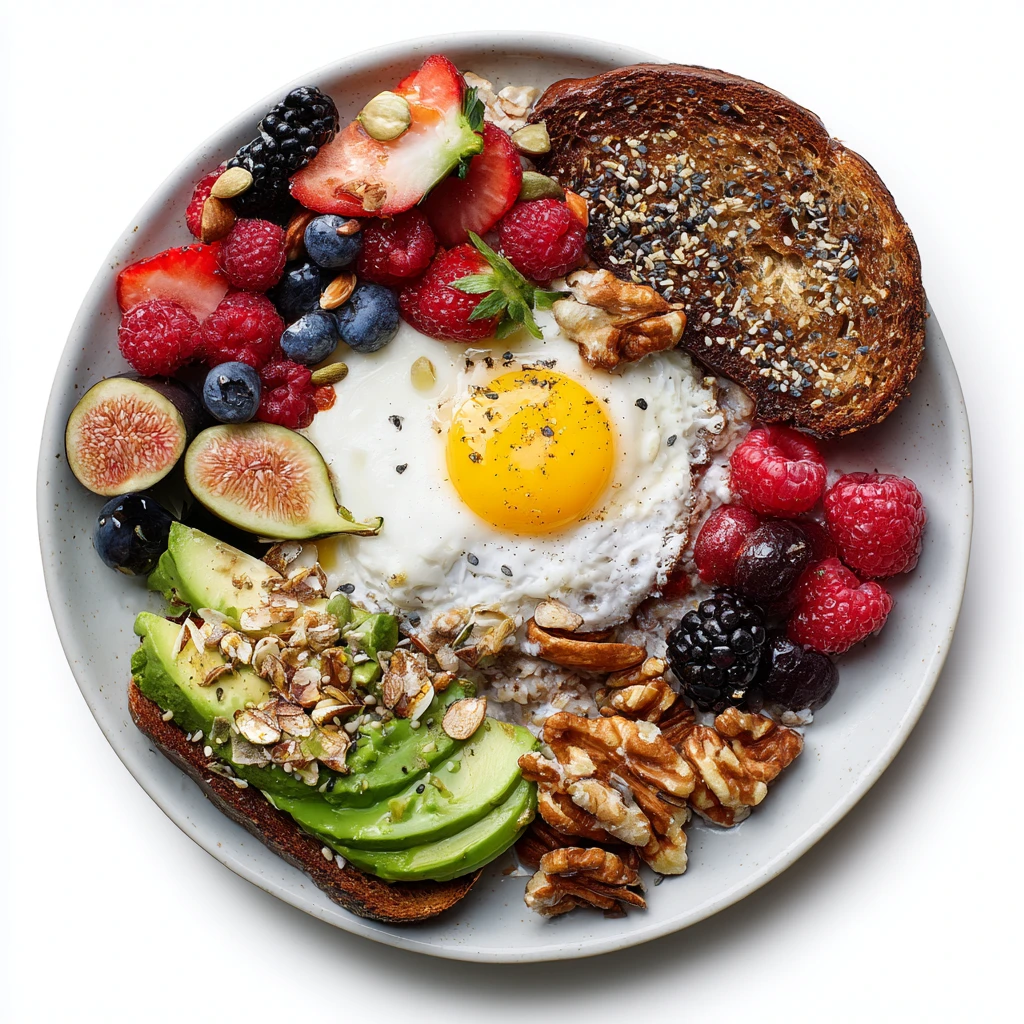
FAQ: Breakfast Edition
Q: Is it really that important to eat breakfast every day?
A: Yes, eating breakfast regularly has been linked to numerous health benefits, including improved cognitive function, better weight management, and a reduced risk of chronic diseases.
Q: What if I'm not hungry in the morning?
A: Try starting with a small, light breakfast and gradually increasing your portion size over time. You can also try eating your breakfast a little later in the morning.
Q: What's a good breakfast for weight loss?
A: Focus on breakfasts that are high in protein and fiber, such as Greek yogurt with berries and nuts or oatmeal with protein powder. These options will help you feel full and satisfied, preventing cravings and overeating later in the day.
Q: Are breakfast bars a healthy option?
A: Some breakfast bars can be a convenient option, but many are high in sugar and processed ingredients. Look for bars that are low in sugar, high in fiber and protein, and made with whole, unprocessed ingredients.
Q: What's the best time to eat breakfast?
A: Ideally, you should eat breakfast within an hour or two of waking up. This will help stabilize your blood sugar levels and provide you with the energy you need to start your day.
